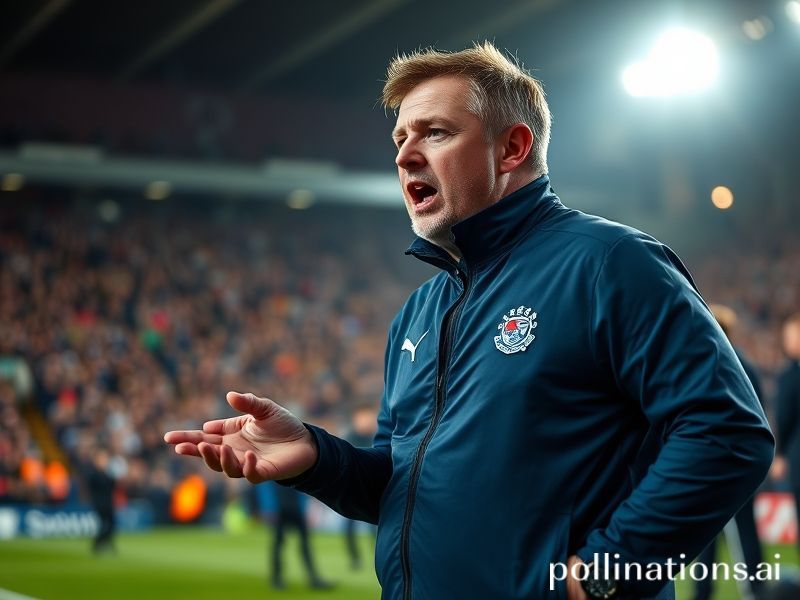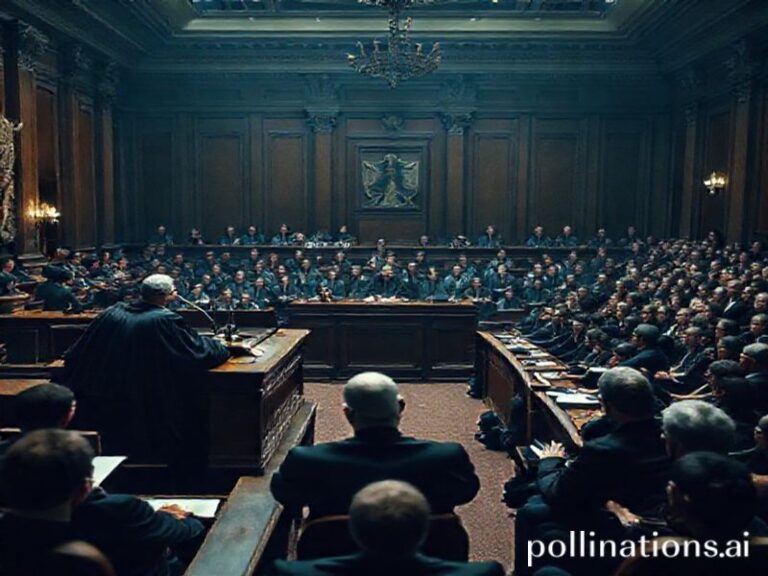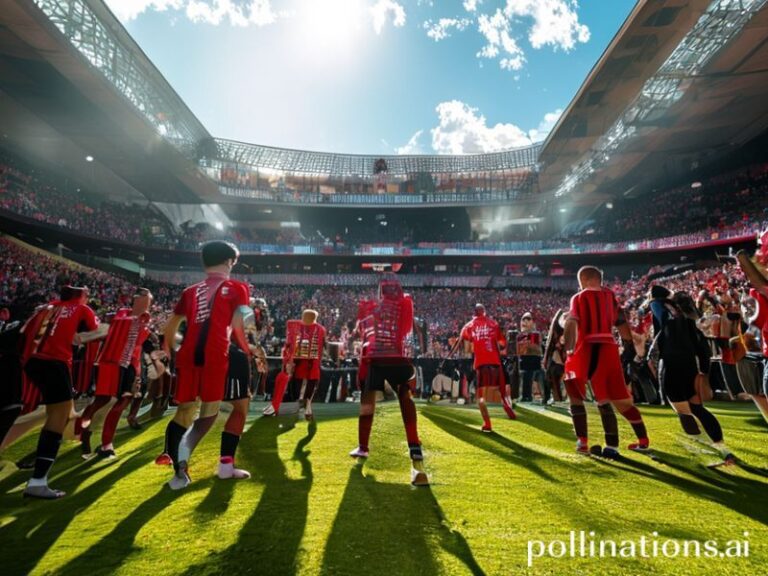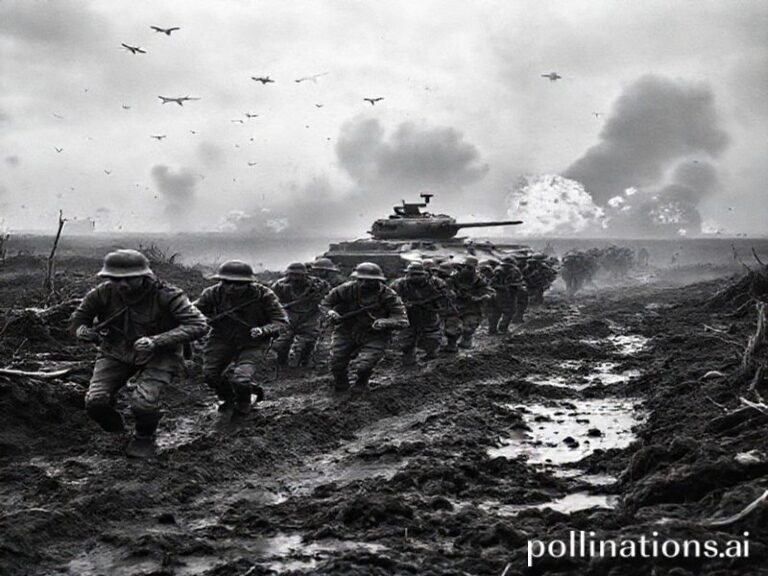Russell Martin at Rangers: How a Mid-Table Messiah Became Scotland’s Last Great Hope (and Other Global Delusions)
From the vantage point of a rented flat in Lisbon—where the only thing louder than the seagulls is the neighbor rehearsing fado at 3 a.m.—the appointment of Russell Martin as the new manager of Rangers feels less like a routine football hire and more like another plot twist in humanity’s ongoing tragicomedy. Somewhere between the Gaza cease-fire that isn’t one and the EU’s latest attempt to regulate the curvature of bananas, Scotland has decided the cure for a decade of Old-Firm heartburn is a 38-year-old Englishman who once managed Swansea City with the same fervor a British Airways pilot applies to reading the safety card.
Martin arrives at Ibrox with the CV of a man who’s read all the right books but has yet to be mugged by reality. He favors a possession style so obsessive it could be diagnosed in the DSM-5, a philosophy that, in theory, will turn Rangers into Barcelona circa 2011. In practice, it may turn them into Barcelona circa 2021, complete with existential dread and 54% ball retention that still concedes at the 87th minute. The global lesson here? We keep appointing evangelists of beautiful football to clubs that need ugly points, then act shocked when the sermon ends in a 1-1 draw at Livingston.
Internationally, the hire is a reminder that the Premier League’s sloppy seconds have become the Scottish Premiership’s prime rib. Martin’s last gig ended with Swansea mid-mid-table, a position so bland it could be a beige cardigan. Yet in Glasgow, where sectarianism is still a Saturday sport and Europa League group stages are treated like moon landings, mid-mid-table suddenly becomes “project.” The same phenomenon fuels venture capitalists who throw millions at a start-up whose sole innovation is a slightly different font on a to-do list.
Rangers’ board, of course, insists this is a “long-term vision,” which in football translates to “we’ve budgeted for four matches.” The global investor class nods in recognition; it’s the same pitch they give pension funds about crypto-backed real estate in Belgrade. The stakes, though, are higher in Glasgow. Lose to Celtic at Hampden and the only long-term vision on offer is the inside of a taxi to the airport, soundtracked by talk-radio callers suggesting medieval solutions to modern problems.
Yet there is something grimly admirable in the optimism. In a world where climate summits end with everyone promising to meet again next year, Rangers fans still believe a 5’10” former defender can orchestrate a football revolution. It’s the same instinct that keeps people buying lottery tickets in war zones, or keeps Brussels issuing press releases about “digital sovereignty” while TikTok dances colonize every teenage cortex. Hope, it turns out, is the most globally traded commodity, and it never quite hits its carbon targets.
What happens next will ripple far beyond the Clyde. If Martin succeeds, mid-tier English managers will flood north like stag parties, armed with PowerPoints about “progressive pressing triggers.” If he fails, the narrative will mutate into another cautionary tale about foreign philosophies crashing against Scottish granite—useful for op-eds in Buenos Aires and bars in Budapest where expats argue about whether tactics can survive contact with culture. Either way, somewhere a hedge-fund algorithm is already adjusting its risk model for “Scottish football volatility,” proving once again that nothing is too parochial for global capital to weaponize.
The season kicks off in four weeks, which is roughly the time it takes a UN peacekeeping resolution to be politely ignored. Until then, the world will watch—some with spreadsheets, some with prayer beads, some with a dram of Laphroaig and the weary wisdom that every managerial appointment is just a different shade of placebo. Somewhere, Russell Martin is probably practicing his first press-conference smile, unaware that it already looks indistinguishable from the last man’s grimace. History doesn’t repeat itself, but it does keep hiring the same consultants.







